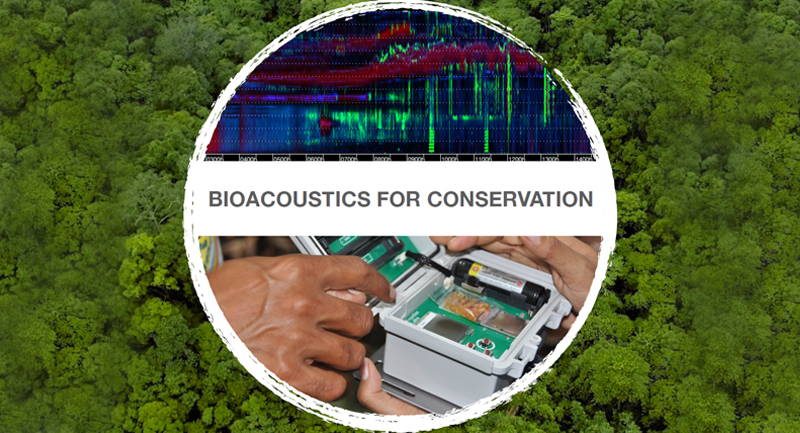
ENVIR ST 400 LEC 001 & 002
Tuesday/Thursday, 4–5:15 p.m.
1 or 3 credits
Instructor

Zuzana Burivalova
Assistant Professor of Environmental Studies and Forest and Wildlife Ecology
burivalova@wisc.edu
Course Description
Recording and analyzing the sounds that animals make is becoming an increasingly common way to detect and monitor wildlife, as well as environmental quality and human interactions with animals. At the same time, it’s still a fairly new discipline, with exciting developments and a great potential for discovery.
This class is offered in the fall semester, and you can take it as either a 3-credit lecture and lab course (ENVIR ST 400-001/301), or as a 1-credit lecture-only course (ENVIR ST 400-002).
Through both options, you will learn 1) the most important concepts of bioacoustics in conservation, including sound propagation, bioacoustic theories, vocal communication of animals, components of a soundscape; 2) through examples of using bioacoustics in conservation and ecology, we will explore which types of questions and problems are suited to biaocoustic monitoring, considering examples from terrestrial as well as aquatic environments. The ability to match the right tool to the right question is transferable to other technologies in conservation.
In the 3-credit option, you will also gain skills in 3) collecting your own soundscape data outdoors, 4) using several different types of sound analysis methods, such as including soundscape indices and individual call analysis and recognition. 5) Skills on field research project design and implementation will be also useful in other research areas.
Throughout the course, we will emphasize the use of bioacoustics in evidence-based conservation, however, the topics may be also interesting for researchers in animal communication and behavior, evolutionary ecology, data science, audio analysts, and musicologists.
Additional Information
The course is aimed for graduate students (or highly motivated upper level undergraduates) who:
- Are using, or interested in incorporating ecoacoustics or bioacoustics in their own research
- Are interested in the field of monitoring and detection of wildlife
- Want to learn about and gain practical skills in a new conservation technology, usable in on-the-ground conservation jobs
- Want to improve skills in how to evaluate which method is best suited for which research question
- Are computer or data scientists interested in or already pursuing the development of new acoustic analysis methods, who want to gain knowledge on how such methods are applied for the greater good in biodiversity conservation
- Are researching animal communication, evolutionary ecology or communication, music, and any other sound-related discipline and they want to broaden their understanding of how the sounds of nature are used in other disciplines
Prerequisites
- Basic familiarity with R, or other programming languages (only needed for the 3-credit option)
Fulfills Environmental Studies
![]()
Theme
UW Designations
![]()
Intermediate
![]()
Biological Science